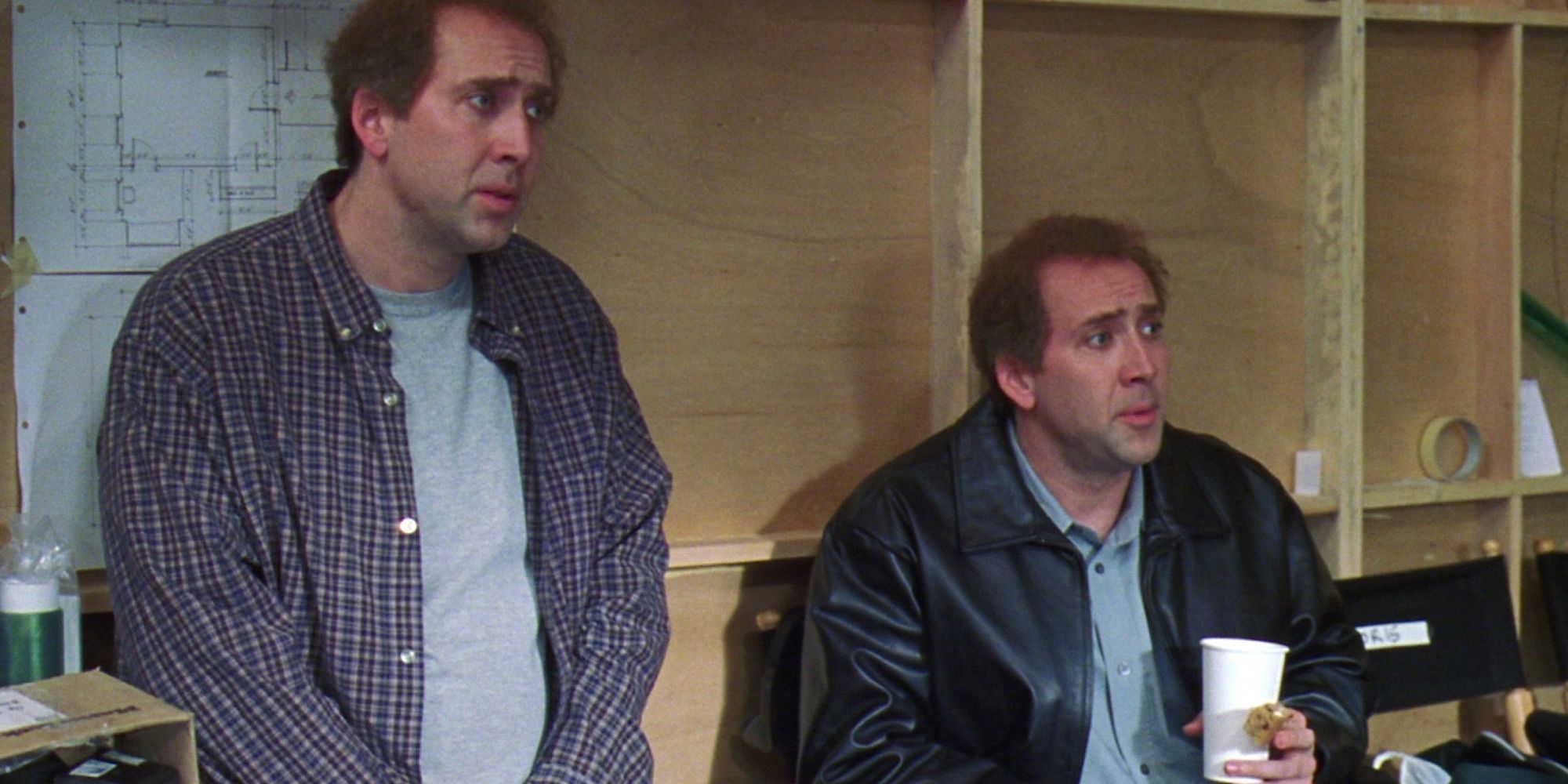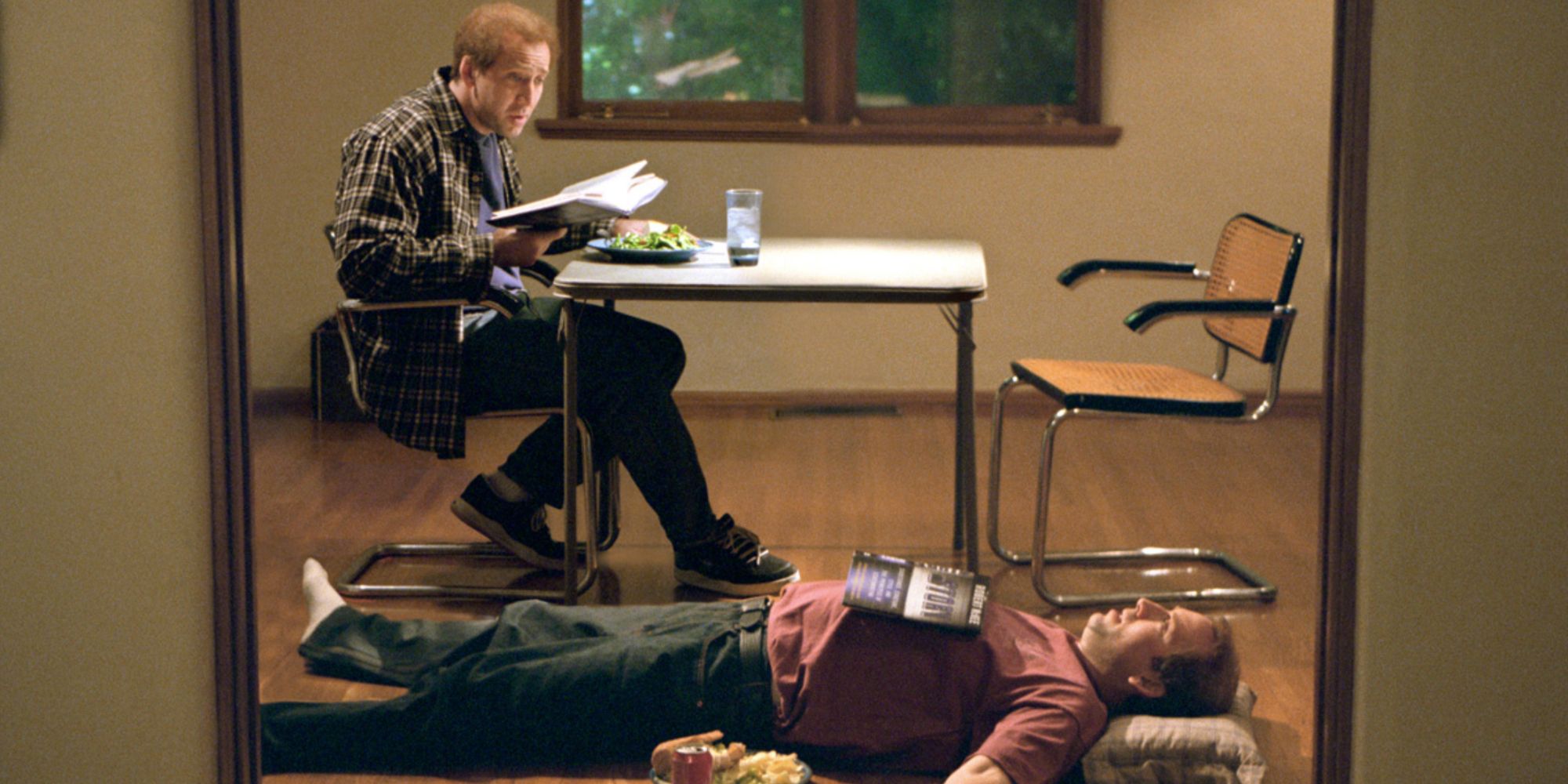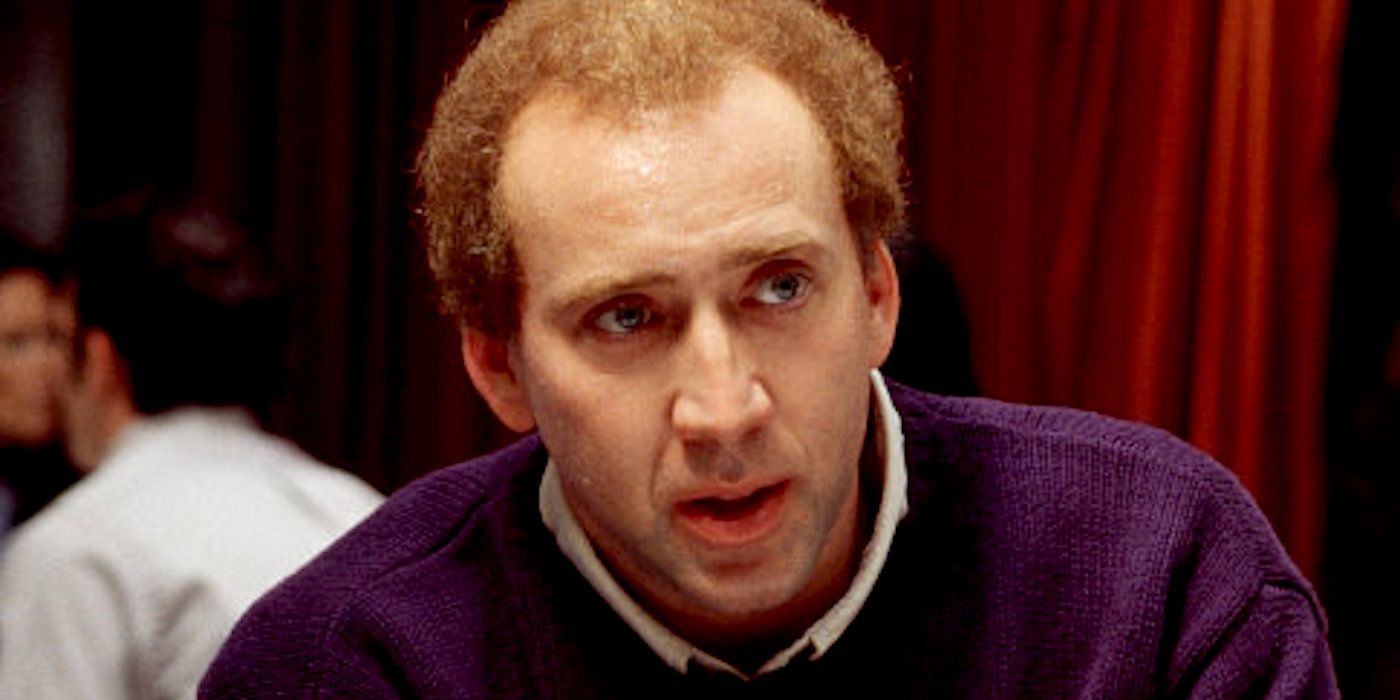The Big Picture
There are plenty of strange Oscars-related achievements. From the time Beatrice Straight won an Academy Award for a mere five minutes of screentime in Network, to Cate Blanchett being the only person to win an Oscar for playing an Oscar winner (Katharine Hepburn in The Aviator), the prestigious ceremony has had plenty of time to generate a few odd records in its ninety-five-year history. However, none are more peculiar than the events of the 75th Academy Awards that saw Donald Kaufman being nominated in the Best Adapted Screenplay category for Adaptation, despite no one of that name existing. In truth, Adaptation’s script was entirely the product of the similarly named Charlie Kaufman, with Donald being a fictitious twin brother whom Charlie had invented for the film. Considering that Adaptation was already one of the most unique films ever made – not least because of Charlie writing himself and his creation as the film’s dual protagonists – it’s fitting that it should claim such a unique accolade.
While ‘Adaptation’ Is Based on Real Events, Donald Kaufman Was Entirely Invented
To understand how Adaptation came to earn this Oscar milestone, one must first take the plunge into the treacherous swamps of Southern Florida. It was here where New Yorker journalist Susan Orlean encountered John Laroche, a plant dealer whose blind (and sometimes illicit) obsession with finding the rare ghost orchid became the basis for her 1998 book The Orchid Thief. Plans for a film adaptation were hastily enacted, and once Columbia Pictures had succeeded in scooping up the rights, Charlie Kaufman – still glowing from the acclaim of his debut script, Being John Malkovich – was recruited to helm the screenplay. Disaster struck almost immediately. The difficulties in translating such a drawn-out book whose strength lay in its flowery (no pun intended) prose as opposed to more filmable aspects like structure or plot grew overbearing, with a hefty dose of writer’s block seeing Kaufman create nothing but the largest pile of blank paper in Los Angeles. For a moment, his career tittered on collapse… at least until a last-minute burst of inspiration saw him going all in on adapting one of the riskiest bets in screenwriting history.
And thus, Adaptation was born: a film about a self-hating screenwriter called Charlie Kaufman and his failure to adapt a nonfiction book called The Orchid Thief into a movie. It was certainly an intriguing solution, even if it did smack of Kaufman taking the advice “write what you know” a bit too close to heart. But it also accomplished everything he could have hoped for. Suddenly, his version of The Orchid Thief was no longer a bland adaptation produced by a writer-for-hire who held no affection for the source material, but a highly personal experience that weaved Hollywood satire and narcissism into a singular narrative that – rather incredibly – still retained the message from Orlean’s original book about finding something to be passionate for. Surprisingly, the studio loved it, with the script being fast-tracked into production under the guidance of Being John Malkovich director Spike Jonze (despite some initial pushback from Orlean). With the always enjoyable Nicolas Cage, Meryl Streep, and Chris Cooper quickly being tapped to portray Kaufman, Orlean, and Laroche, respectively, the foundation was set for a delicious slice of silver screen surrealism that only Charlie Kaufman could envision.
Adaptation may have its origins in real events, but it has only a flimsy relationship with the truth. The best signifier of this comes with the inclusion of Charlie’s fictional brother, Donald Kaufman (also Cage, because why settle for one Nicolas Cage performance when you can have two). The film depicts him as the personification of Charlie’s worst nightmare: a more confident and charismatic version of himself who’s successful with women and makes a comfortable living hammering out banal screenplays about serial killers. While early scenes present him in an antagonist light, Donald gradually becomes a beacon of inspiration for Charlie, providing him with the tools to complete his script. All of this – from the self-doubt to the wish fulfillment to the spark of motivation just when things are at their worst – undoubtedly mirrors the torrent of emotions the real Charlie Kaufman must have felt whilst developing Adaptation, turning Donald into a representation of the grueling but rewarding process of writing. So grateful was Charlie to his creation that he credited Donald as the film’s co-writer, enhancing what Roger Ebert beautifully described as Adaptation’s “illusion of life colliding with art.” It’s one of many touches that elevated Adaptation’s profile, and also one that produced some rather unusual results…
Donald Was Credited as ‘Adaptation’s Co-Writer, Making Him Eligible for Award Recognition
The thought-provoking nature of Adaptation’s script (not to mention its sheer originality) propelled Charlie into becoming a permanent fixture at the yearly awards shows, including a place at the 75th Academy Awards. Since the screenplay had been attributed to both Kaufman brothers in all official materials – most significantly, for Adaptation’s entry on the Writers Guild of America West’s website – the Academy had little choice but to accept the credits as given. Hence, when the nominees for Best Adapted Screenplay were announced on February 11, 2003, Donald Kaufman’s name was included on the list, making him the only fictional person to be nominated for an Oscar. Sadly, tough competition robbed us of the chance to see how Charlie Kaufman would have utilized this golden opportunity had he won, with Ronald Harwood instead prevailing for his work on The Pianist. How the Academy’s infamously old-fashioned membership would have reacted to such an unprecedented win would also have been interesting to see (all that representatives at the time confirmed was that the Kaufman brothers would have been forced to share one statuette). Perhaps this trepidation is what guided them to the more conventional pick.
But the nomination of Donald Kaufman is more than just a fun piece of Oscar trivia. It’s also a fitting conclusion to the Hollywoodization of The Orchid Thief. During its longwinded journey to the big screen, Adaptation evolved from a simple story about flowers to a hurricane of interconnected themes and emotions – among them, how it feels to live the life of a Hollywood screenwriter. The film’s opening, which sees Charlie walking unseen through the set of Being John Malkovich (despite being the only reason anyone is there), lays the groundwork perfectly. Shortly after, Charlie’s dismay upon witnessing his brother’s cliché-ridden script being eaten up by studio executives would evoke depressing memories for anyone who cares about the integrity of their craft, turning Donald into a metaphorical punching bag for the real-life Charlie to vent his anger.
But it’s also these clichés that get Adaptation over the finishing line in both the real and the imagined world, proving Charlie’s earlier point that a film about flowers is no film at all… unless it sacrifices its integrity for commercial viability, that is. The film’s transition from drama to thriller occurs exactly when Donald is enlisted by his brother to help write The Orchid Thief, allowing for a third-act deconstruction of both everything you’ve just watched and the money-driven system that birthed it. It’s a twist that embodies everything Adaptation is about, and none of it would have happened if not for one fabricated man. Donald doesn’t exist, but without him, neither would Adaptation. That the ending of this saga was Charlie being nominated for an Academy Award alongside the character that defined every step of this odyssey feels entirely proper.
Donald Kaufman Remains the Only Fictional Person To Be Nominated for an Oscar
Technically, the Academy has recognized multiple people who aren’t real. Dalton Trumbo, for instance, won two Academy Awards for Best Story under false names due to his blacklisting for alleged communist sympathies in the 1950s, while the Coen Brothers have received two nominations for Best Editing under their regular pseudonym of Roderick Jaynes. Similar examples recur throughout the ceremony’s history, but it’s crucial to remember that all of these cases were disguises for real people. In comparison, the case of Donald Kaufman does not follow this precedent since Adaptation was written by just one person, making its nomination a truly distinctive situation. But Adaptation was never your normal film. It’s a cinematic playground that’s bursting with ambition, never content to follow the rules unless it can do so while shining a light on its own creative limitations. In other words, a Charlie Kaufman film. Even in a career defined by surrealistic psychodramas, Adaptation stands out as a unique specimen, not least because of the excellent brotherly dynamic at the heart of its narrative. Academy Award-nominated writer Donald Kaufman might not exist, but when the impact he spawned was this genuine, he might as well be.










